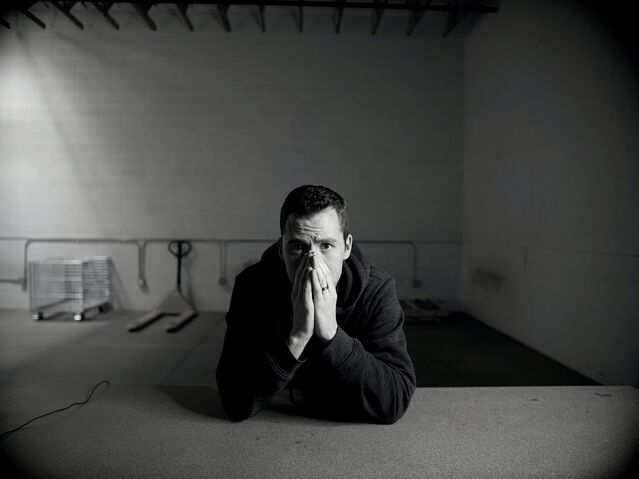
Many people ask me how they can get their loved ones to accept their illness. They tell me I seem to exhibit a lot of awareness of my strengths and weaknesses as a person living with schizoaffective disorder, and they wonder how their loved ones can do the same.
It’s true that in order to self-improve, you have to have some degree of insight into what you need to improve on. Without that insight, you may never be able to get better.
The lack of insight and, therefore, lack of acceptance of one’s own illness is referred to as anosognosia. It can leave people unable to care for themselves, lead them to refuse medication, and cause them to be subject to involuntary treatment (Labovich, 2021). The ability to have insight into one’s illness is a predictor of medication adherence, symptom remission, job retainment, and risk of violence toward the self or others (Lehrer and Lorenz, 2014). Curbing the effects of this lack of insight is crucial since more time spent in psychosis can potentially lead to more permanent brain changes, which is why early and regular treatment may show a better prognosis for first episodes of psychosis (Lehrer and Lorenz, 2014).
The Science of Anosognosia
Anosognosia exists in multiple psychiatric and neurological disorders, including Alzheimer's disease and traumatic brain injury. It’s widely known to affect from 50–57 percent to 90–98 percent of patients with schizophrenia, while 40 percent of patients with bipolar disorder exhibit lack of awareness (Acharya and Sanchez-Manso, 2022; Lehrer and Lorenz, 2014). Compared with nonpsychotic disorders, patients with schizophrenia exhibit more self-awareness deficits (Lehrer and Lorenz, 2014).
The lack of awareness can actually be seen in the brain in neurological conditions, particularly in the regions in the right hemisphere including the right parietal and right temporoparietal regions. However, for psychiatric patients, evidence for anosognosia is usually nonspecific (Acharya and Sanchez-Manso, 2022). This makes it difficult to know when a person can be helped; however, several strategies have been tried in clinical practice that may show positive results.
How to Treat Anosognosia
Radical treatment strategies for anosognosia specifically have progressed little in the past 20 years, but a paper published in 2004 advocates a focus on symptoms rather than on illness to move people along in their recovery (Rickelman, 2009). Oftentimes, telling a person they are sick is not productive. Instead, draw attention to their lack of engagement in their favorite hobby or point out how it feels to not shower for days at a time. Talking about hallucinations, delusions, and their specific thought process during those symptoms may go a longer way than telling them they are “schizophrenic” and “need treatment.”
Instead of convincing people with psychosis that their paranoia about the CIA spying on them is false, clinicians suggest reminding them of previous coping skills that have worked during their times of distress. You could ask the patient, “Do you remember when taking your medication or drawing your hallucinations helped you last time this happened?” Avoiding judgment seems to be a universal suggestion (Rickelman, 2009).
People with schizophrenia experience a high rate of involuntary hospitalization, which can often be damaging to family relationships. Clinicians suggest these steps for talking with your loved one (Rickelman, 2009):
- State something that indicates you know how they feel—for example, “I know you must feel upset with me."
- Express your regret with an emphasis on feeling: “I felt like I had to do this” instead of “I needed to do this for your own benefit.”
- Explain any fears you had about if you didn’t hospitalize them while avoiding sounding angry or blaming.
- Avoid asking for agreement. Try to gain their possibility of understanding and entertaining your perspective for involuntarily placing them in the hospital.
I look back at these tips and realize that my caregivers were using these strategies long before I learned what “anosognosia” meant. As a result, I have the utmost sense of trust toward them and call them immediately after feeling unstable from a delusion or hallucination. It gave me confidence that I could take a position of leadership in my recovery and hold a sense of collaborative team effort with my caregivers who minded my comfort instead of telling me what I got wrong about my illness and treatment.
Trust and mental illness take time, but it can be done. With these tips, hopefully everyone can work toward coming to an understanding.
"accept" - Google News
June 28, 2022 at 08:35PM
https://ift.tt/LWeIQyj
How to Help a Loved One to Accept Their Mental Illness - Psychology Today
"accept" - Google News
https://ift.tt/Qj1O0A7
https://ift.tt/6gtOvlu
Bagikan Berita Ini














0 Response to "How to Help a Loved One to Accept Their Mental Illness - Psychology Today"
Post a Comment